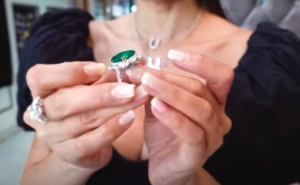Singapore—A majority of Singaporeans are either neutral or positive concerning foreigners or non-citizens in the country, according to a recent poll from REACH, the Ministry of Communications and Information national feedback and engagement unit.
In a statement released on Saturday (Oct 10), REACH said its poll showed that “Singaporeans do not feel strongly negative about foreigners in Singapore.”
The feedback unit said that it has conducted a poll via telephone to 2,100 randomly selected Singapore citizens from the ages of 15 and older from August 11 to 21, 2020, as well as an online poll of 1,050 randomly selected Singapore citizens in the same age range from August 11 to 21, 2020.
According to Mr Tan Kiat How, REACH Chairman and Minister of State in the Prime Minister’s Office and the Ministry of National Development, “During this difficult period, Singaporeans are understandably anxious over job security and career opportunities. The Government remains committed to helping Singaporeans keep their jobs or find new ones. Nevertheless, it is heartening to know that many Singaporeans understand the need for Singapore to remain open to global talent.”
Forty-nine per cent—or nearly half—of the respondents said that they were neutral on the issue of foreigners in the country. Moreover, the percentage of respondents who expressed negative sentiments were relatively low, with 14 per cent either very negative or negative about foreigners in Singapore. Furthermore, the statement from REACH pointed out that those who ere either very positive or positive about foreigners in Singapore were more than double of that, at 35 per cent.
The poll also found that respondents who were jobless were more likely to feel negative towards foreigners. And this group also had a higher rate of job-related concerns concerning foreigners.
Concerning the top three things that bothered the respondents the most concerning foreigners, 47 per cent did not mention any concerns about foreigners, while 23 per cent mentioned job-related concerns, and 16 per cent concerned about the social habits of foreigners (e.g. perceptions of cleanliness, talking loudly).
The study also found that “Singaporeans generally agreed with the importance of remaining open to foreigners,” with 63 per cent strongly agreed or agreed that it is important that Singapore remains open to foreigners. One-quarter of the respondents expressed that they were neutral with regards to the issue, and 10 per cent strongly disagreed or disagreed with this statement. Jobless respondents were also “more likely to be neutral on the importance of Singapore remaining open to foreigners.”
Finally, 81 per cent of the respondent agreed that even though some jobs end up occupied by foreigners, it is still good for the country to be a regional hub in jobs creation. Nineteen per cent of the respondents said it’s better for Singapore not to be a regional hub so that the number of foreigners in Singapore would be reduced, even if this meant a decrease in job opportunities for Singaporeans. —/TISG
Read also: More Singapore job-seekers open to salary cuts amid Covid-19 pandemic: Survey
More Singapore job-seekers open to salary cuts amid Covid-19 pandemic: Survey
























